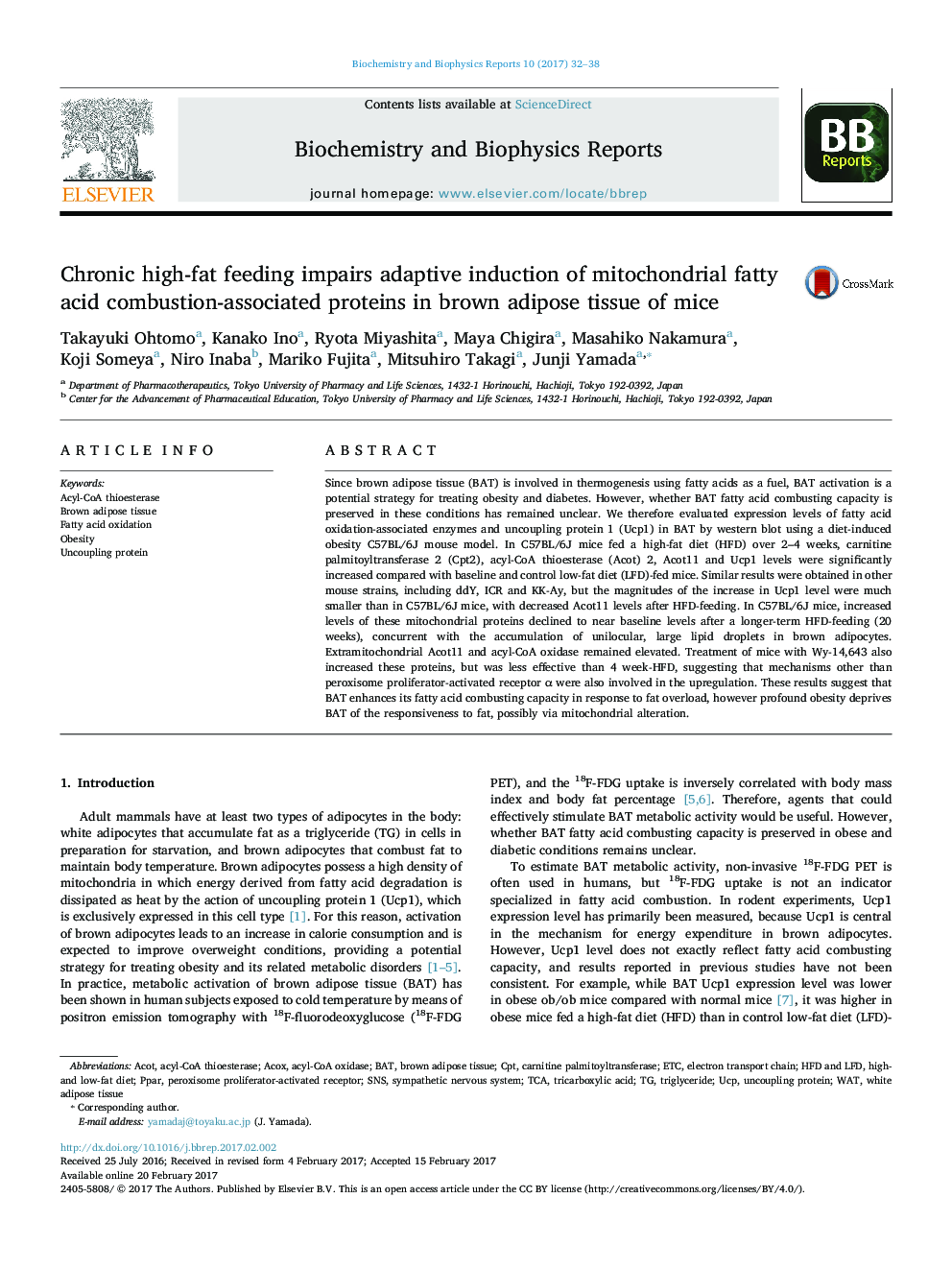| کد مقاله | کد نشریه | سال انتشار | مقاله انگلیسی | نسخه تمام متن |
|---|---|---|---|---|
| 5506993 | 1536898 | 2017 | 7 صفحه PDF | دانلود رایگان |
- BAT activation is a potential strategy for treating obesity and diabetes.
- BAT enhances its fatty acid combusting capacity in response to high-fat feeding.
- Profound obesity deprives BAT of the responsiveness to fat overload.
- Susceptibility to BAT activation could depend on the degree of obesity.
Since brown adipose tissue (BAT) is involved in thermogenesis using fatty acids as a fuel, BAT activation is a potential strategy for treating obesity and diabetes. However, whether BAT fatty acid combusting capacity is preserved in these conditions has remained unclear. We therefore evaluated expression levels of fatty acid oxidation-associated enzymes and uncoupling protein 1 (Ucp1) in BAT by western blot using a diet-induced obesity C57BL/6J mouse model. In C57BL/6J mice fed a high-fat diet (HFD) over 2-4 weeks, carnitine palmitoyltransferase 2 (Cpt2), acyl-CoA thioesterase (Acot) 2, Acot11 and Ucp1 levels were significantly increased compared with baseline and control low-fat diet (LFD)-fed mice. Similar results were obtained in other mouse strains, including ddY, ICR and KK-Ay, but the magnitudes of the increase in Ucp1 level were much smaller than in C57BL/6J mice, with decreased Acot11 levels after HFD-feeding. In C57BL/6J mice, increased levels of these mitochondrial proteins declined to near baseline levels after a longer-term HFD-feeding (20 weeks), concurrent with the accumulation of unilocular, large lipid droplets in brown adipocytes. Extramitochondrial Acot11 and acyl-CoA oxidase remained elevated. Treatment of mice with Wy-14,643 also increased these proteins, but was less effective than 4 week-HFD, suggesting that mechanisms other than peroxisome proliferator-activated receptor α were also involved in the upregulation. These results suggest that BAT enhances its fatty acid combusting capacity in response to fat overload, however profound obesity deprives BAT of the responsiveness to fat, possibly via mitochondrial alteration.
Journal: Biochemistry and Biophysics Reports - Volume 10, July 2017, Pages 32-38
